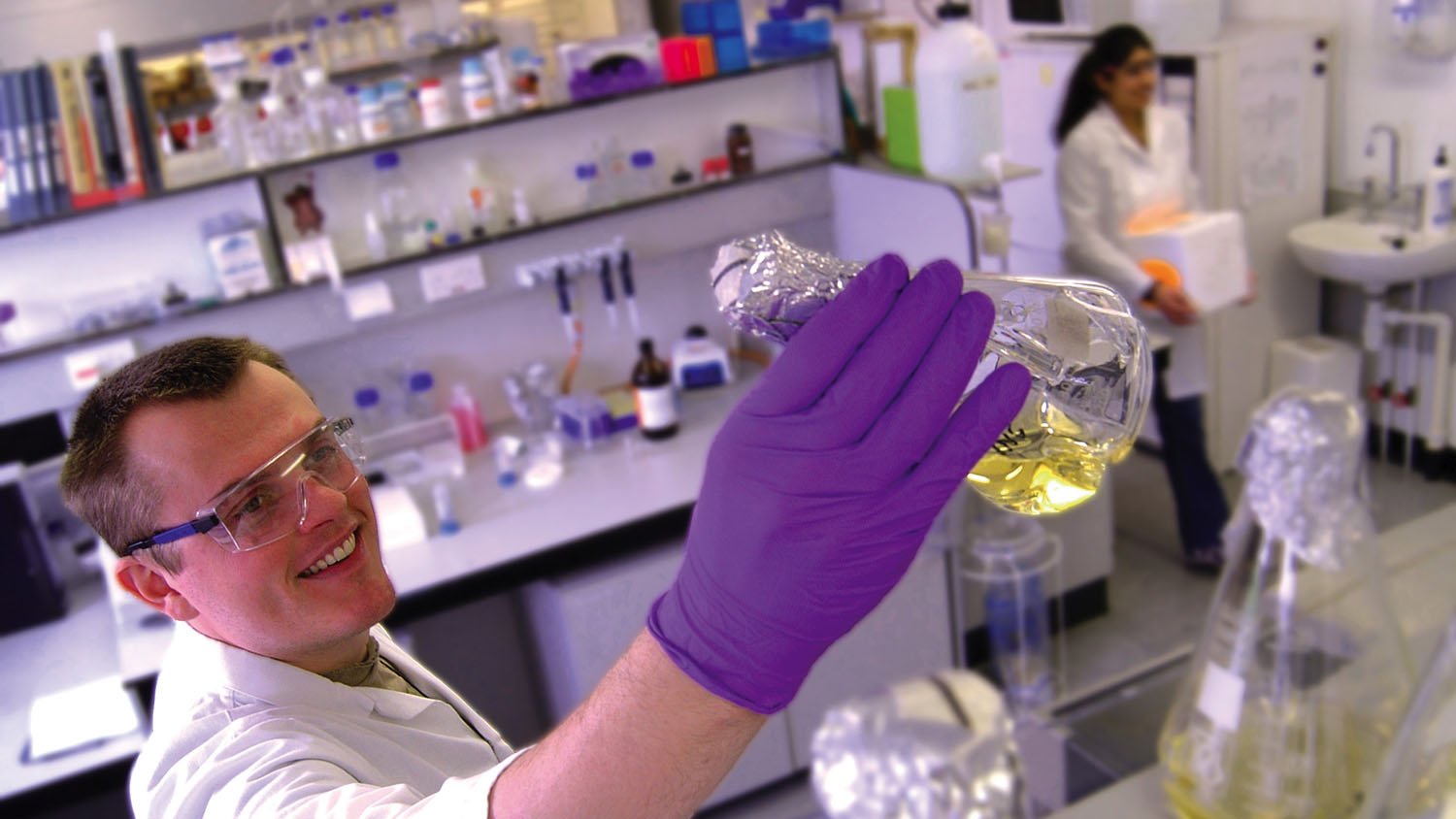Human Health

The region's strengths in agricultural and biological research are vital in developing effective disease controls and treatments, with important implications for both animal and human health.
Through an understanding of basic mechanisms of health and disease and comparative biology of animal species, research conducted within the Midlothian Science Zone can enhance human health.
With its proximity to Edinburgh, the Midlothian region is supported by the critical mass of world-leading research, research excellence in a number of life science fields and a focus on collaboration as a means to advance research and commercialisation.
The area boasts access world-leading research organisations which include four universities and three university teaching hospitals that together house a further 11 institutes dedicated to the life sciences, in addition to the numerous centres of excellence.
This highly integrated life sciences community is structured to maintain a world-leading research position. This is managed through effective multidisciplinary research groups, research pooling and knowledge transfer which has made research in Edinburgh and the Lothians more efficient, more thorough and more innovative.
Midlothian and Human Health
Midlothian Science Zone is a dynamic One Health community and a location of choice for its cluster of researchers in human health, covering a diverse range of research areas from stem cell research, through human diseases.
Biotechnology
The University of Edinburgh undertakes research into important areas of medical research that are relevant to life today, and aims to understand, alleviate and eradicate the disease and health problems of modern society. Edinburgh excels at research into inflammation, cardiovascular disease, reproductive biology, immunology, cancer, infectious disease and neuroscience.
Genetics
Genetics research aims to identify the molecular and cellular mechanisms underlying normal human development and disease through world-leading research. This includes the use of modern technology to advance research into genetic manipulation and epigenetics.
Edinburgh Genomics is the largest academic sequencing facility in Europe, catering for whole genome sequencing of human and animal genomes as well as an exceptional range of bespoke genomic applications from ChIp-seq, RNA-seq and targeted sequencing, to long-read sequencing of small and large genomes.
This leading-edge technology places Edinburgh and the Lothians at the forefront of the revolution in genome technology and information and is driving a sea-change in biomedical research, clinical practice and agricultural breeding strategies.
Stem Cell Research
Stem cell research and regenerative medicine have the potential to significantly impact on a broad range of life science sectors to advance human and animal health.
The Institute for Regeneration and Repair (IRR) is a research institute based at the University of Edinburgh, where scientists and clinicians study tissue regeneration and repair to advance human health and reproductive outcomes.
The Institute incorporates three leading research centres with a focus on regenerative medicine, inflammation and reproductive health.
Research and Development
Scotland has emerged as world-leader in many fields including cancer research, cardiovascular research, neuroscience, genomics, proteomics and bioinformatics, signal transduction biology, stem cell research, virology and immunology.
From broad life science fields to specialist life science subjects, Edinburgh and the Lothians is exceptional at a number of areas with a major focus on human health.
The Queen's Medical Research Institute (QMRI), one of five research institutes at the College of Medicine and Veterinary Medicine, is a world class clinical research facility addressing major disease challenges. Research is broadly focussed on normal and diseased cells and inflammation and tissue repair.
Drug Discovery
The drug discovery industry is evolving rapidly, this evolution is stimulated by increased accessibility of new technologies such as next generation sequencing, systems biology and imaging that enhance our ability to interrogate complex biological systems.
